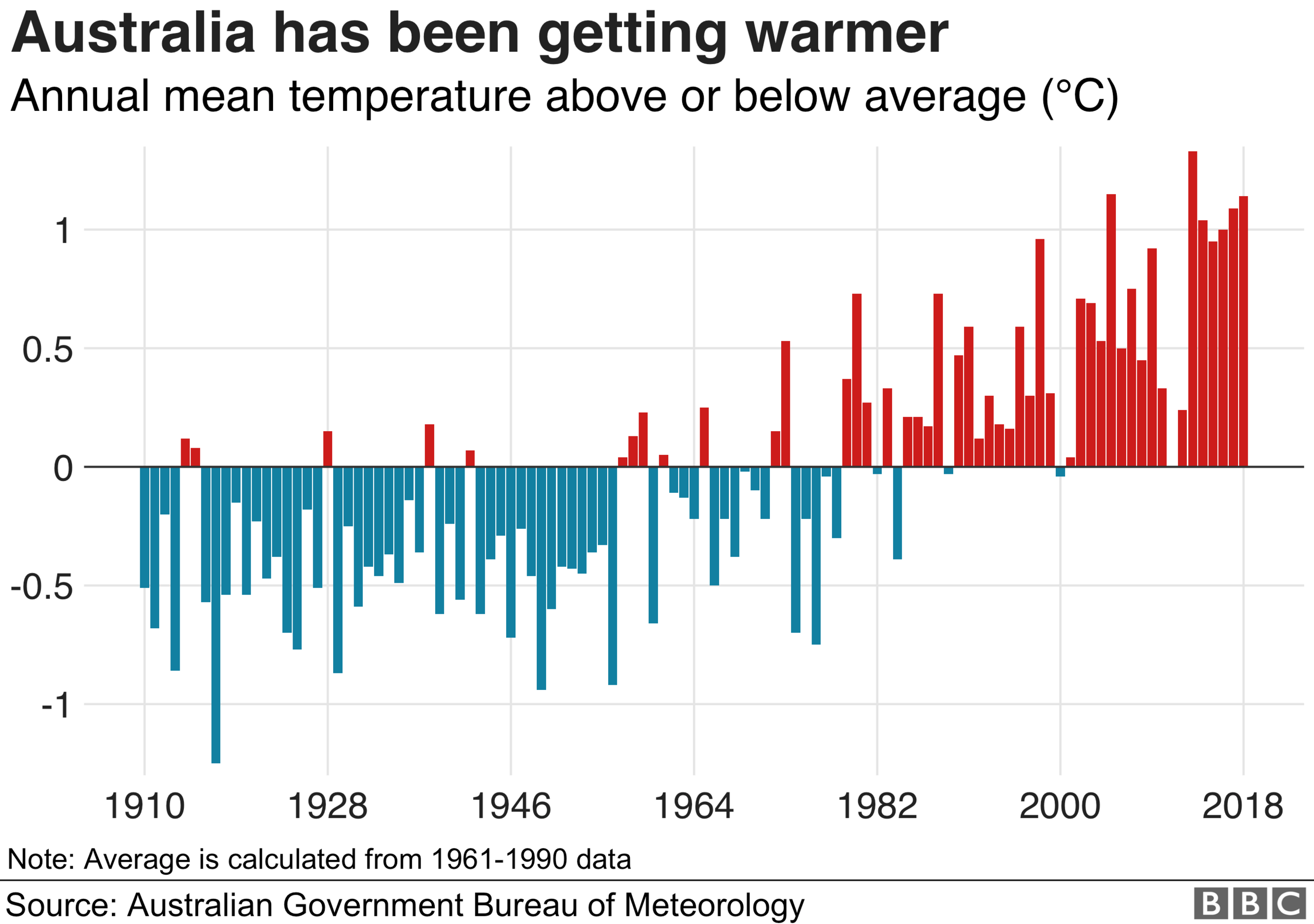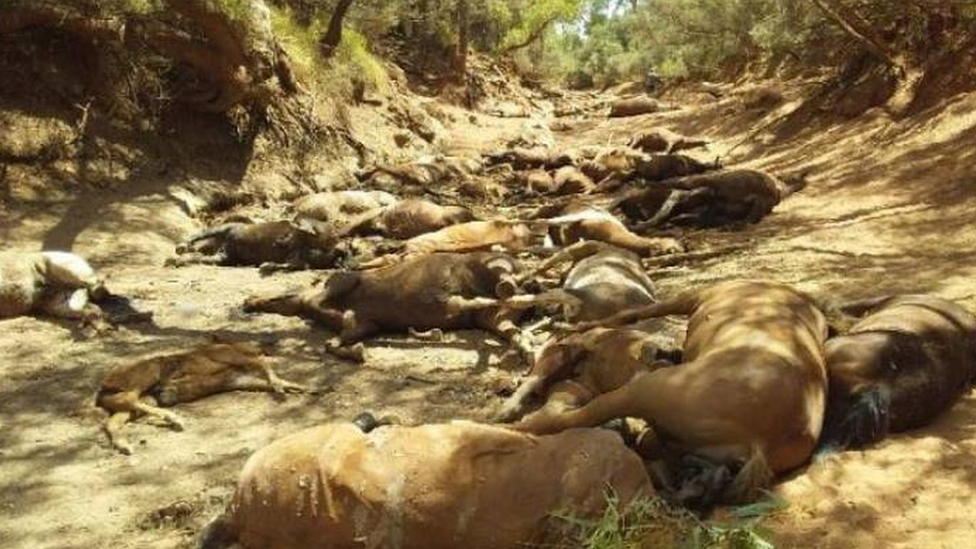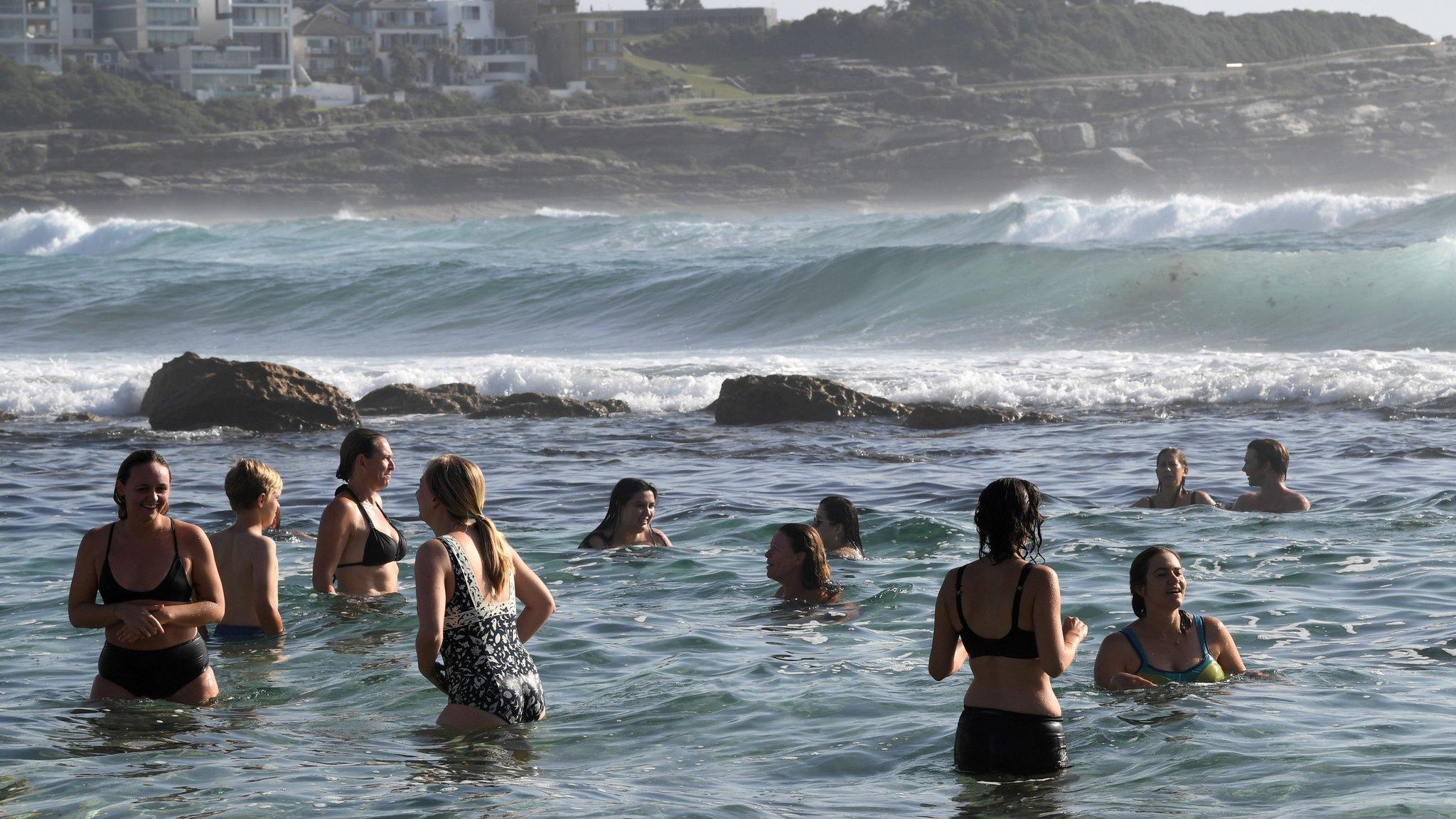Australia weather: January was hottest month on record
- Published

Tennis matches at the Australian Open were suspended because of the heat
Australia recorded its hottest month ever in January, with average temperatures exceeding 30C (86F) for the first time.
According to the Bureau of Meteorology, the extreme heat was "unprecedented", external during the country's summer period.
At least five January days were among the 10 warmest on record, with daily national temperature highs of 40C.
The heat has caused wildfire deaths, bushfires and a rise in hospital admissions.
Several wildlife species have also suffered, with reports of mass deaths of wild horses, native bats and fish in drought-affected areas.
The new record surpasses conditions recorded in 2013, previously considered the nation's worst heatwave.
Just how bad did it get?
A large swathe of the state of New South Wales bore the brunt of the fortnight of extreme heat, with temperatures also soaring in parts of Queensland, South Australia, Victoria and the Northern Territory.
In Tasmania, fire crews battled more than 50 bushfires fuelled by dry conditions and strong winds
Health authorities said 44 people had come in for treatment in the space of 24 hours, external in South Australia
Several tennis matches at the Australian Open in Melbourne were suspended
The city of Adelaide broke its own records twice in the month, first reaching 47.7C and then 49.5C
More than 90 wild horses were found dead or dying in Northern Territory
Snakes have sought shelter and water in people's bathrooms, with one python climbing up a shower, according to a snake catcher in Queensland, external
Millions of dead fish have been found in New South Wales
How were records broken?
"We saw heatwave conditions affect large parts of the country through most of the month," climatologist Dr Andrew Watkins said.
Records were broken for both duration and also individual daily extremes, he said. Rainfall was also below average for most areas.
Australia has increasingly endured hotter summer temperatures. Last year Sydney experienced its hottest day since 1939, with a maximum temperature of 47.3C.
"The warming trend which has seen Australian temperatures increase by more than one degree in the last 100 years also contributed to the unusually warm conditions," Dr Watkins said.
How is climate change affecting Australia?
Officials have confirmed that 2018 and 2017 were Australia's third and fourth-hottest years on record respectively.
The Bureau's State of the Climate 2018 report said climate change had led to an increase in extreme heat events, external.
Even if global temperatures are contained to the Paris accord limit of a 2C rise above pre-industrial levels, scientists believe the country is facing a dangerous new normal.
Parts of eastern Australia suffered their worst drought in recent history last year, while thousands of Australians fled their homes when bushfires swept through Queensland in November.

- Published24 January 2019

- Published18 January 2019

- Published25 January 2019

- Published15 January 2019

- Published9 January 2019
